Worked Muscle, Forms, Common Mistakes, Techniques
This is a comprehensive guide for bench press. The bench press is a compound, highly effective strength-training exercise, eliciting a high level of muscle activity in the pectoralis major. It is shown to be the fast track to strong chest muscles.
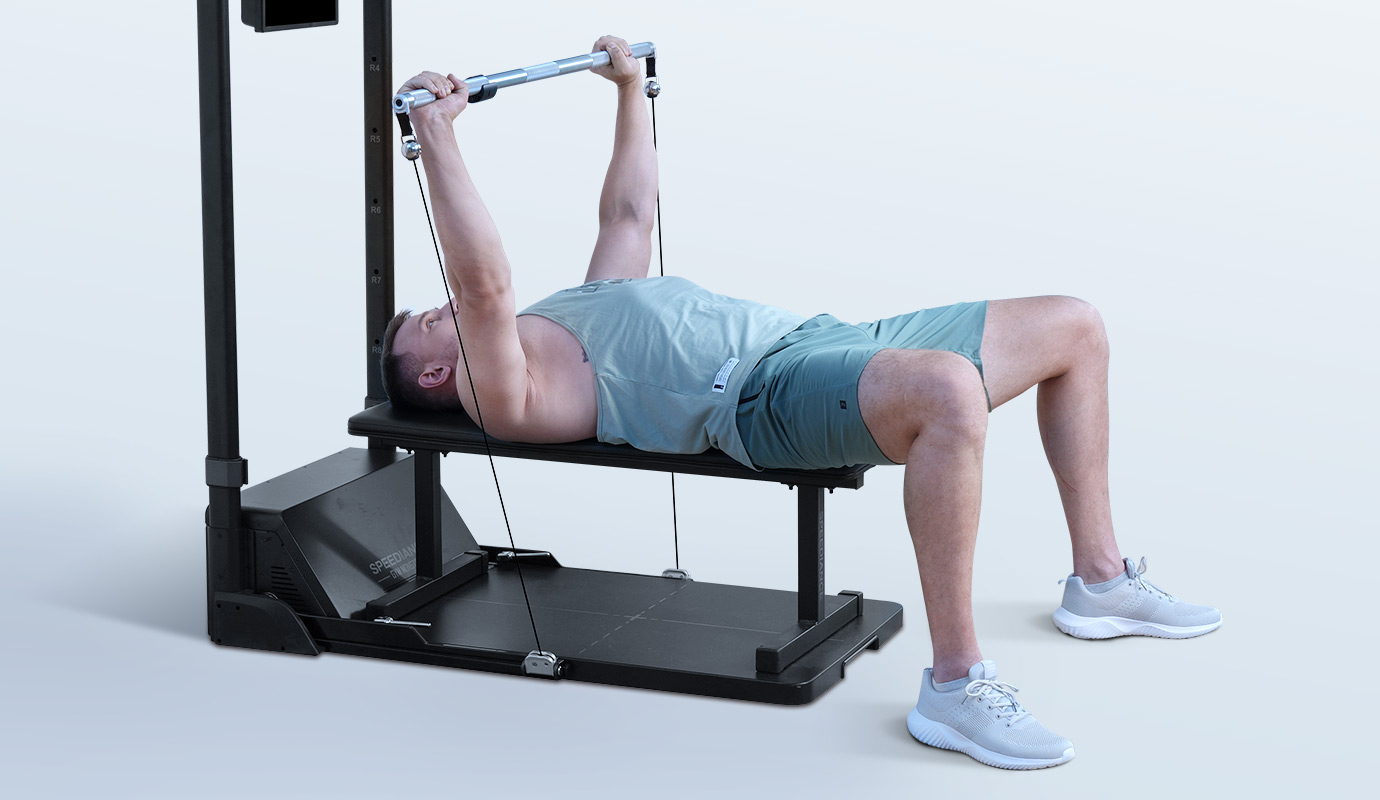
|Product:Speediance Home Gym|
-
Muscles Worked by a Bench Press:
Primary muscles worked: Chest
Secondary muscles worked: Front deltoid & Triceps
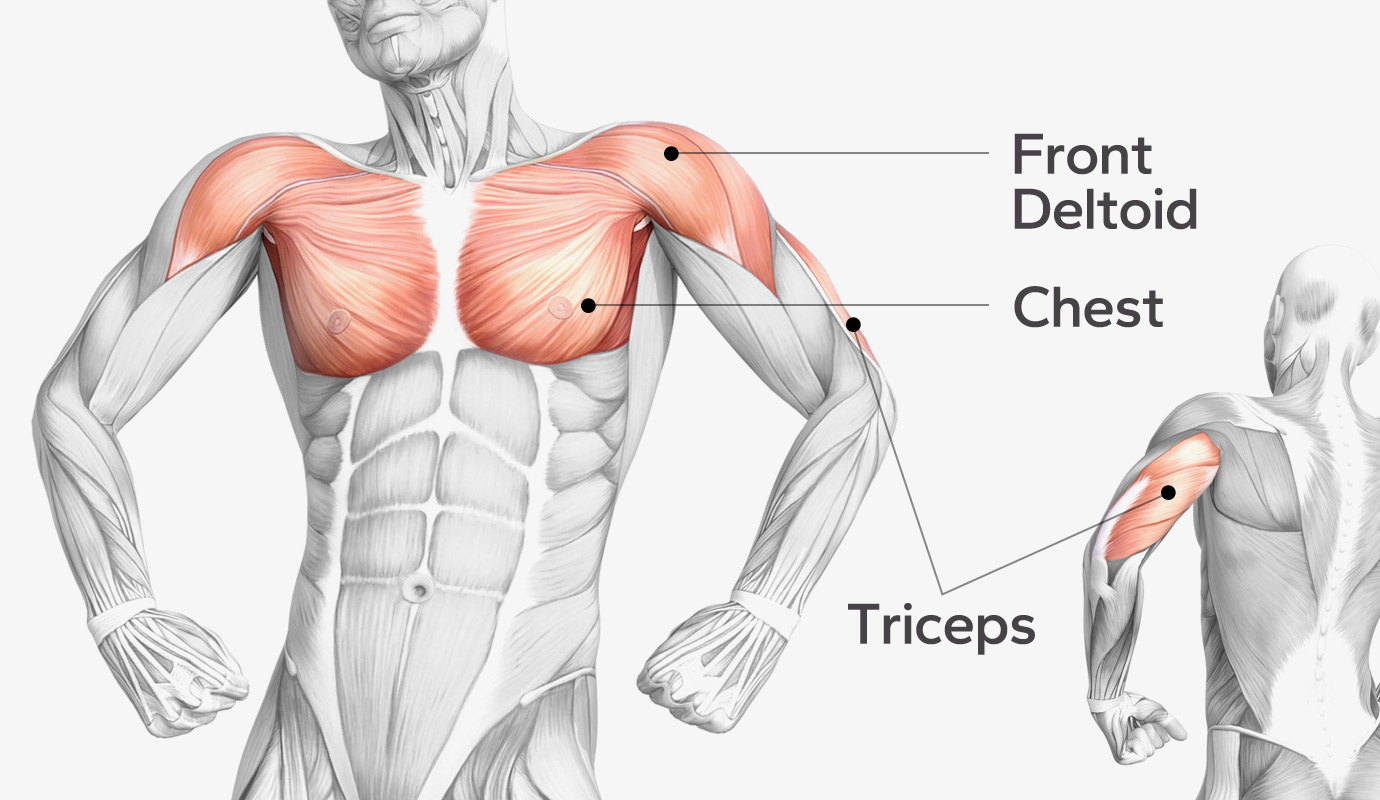
So it is normal to have post-workout soreness in the shoulders, upper arms, chest and back. Bench press works it all.
-
Preparation Before Bench Press
If you want all the tension on your chest, instead of shoulder or triceps during bench press, there are things you need to know about your scapular position.
1) Correct Scapular Position
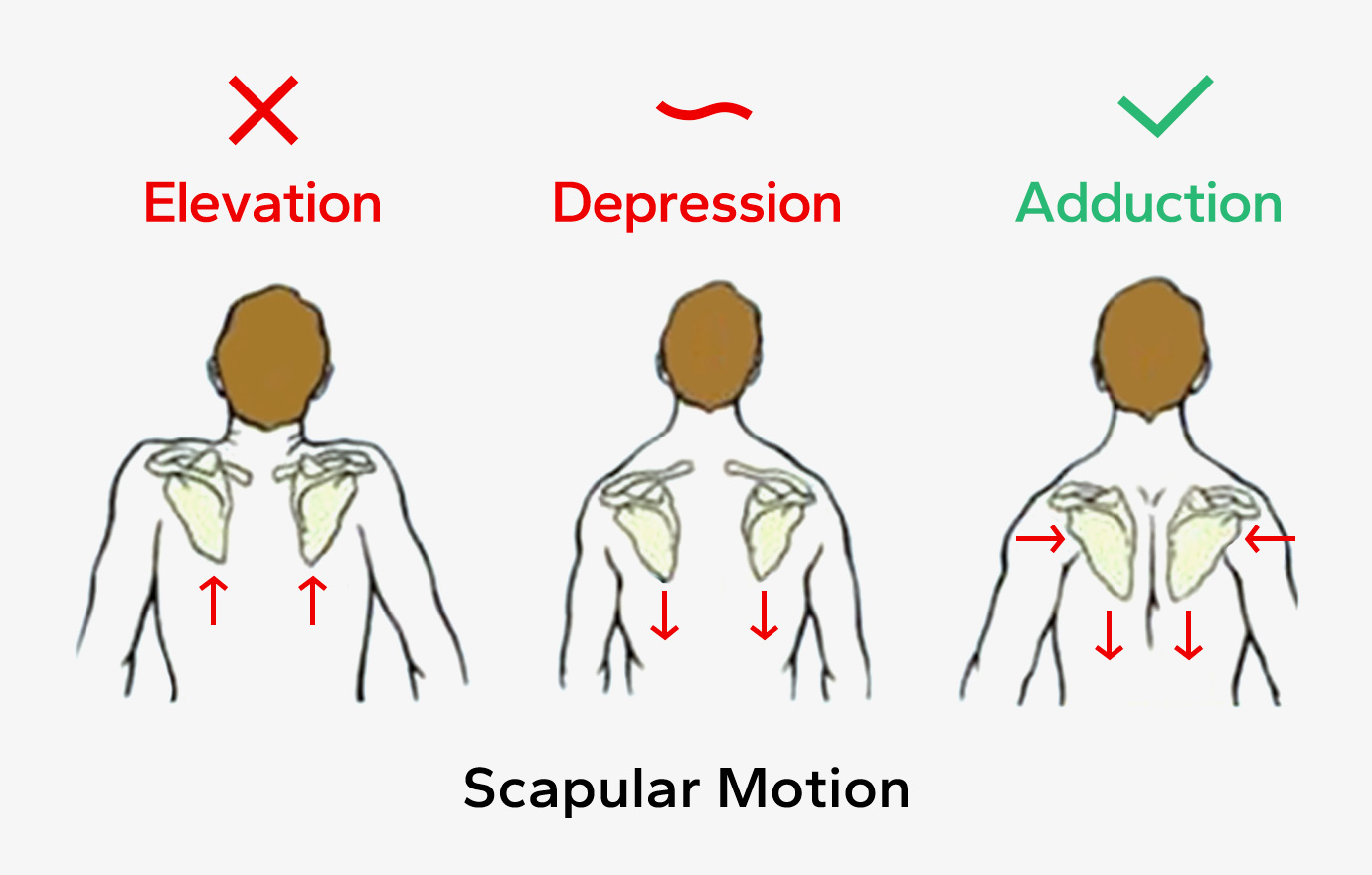
Relax your shoulders and drive the shoulder blades back and down through your arms, then slightly retract your shoulder blades together.
2) Empty-Handed Stimulation
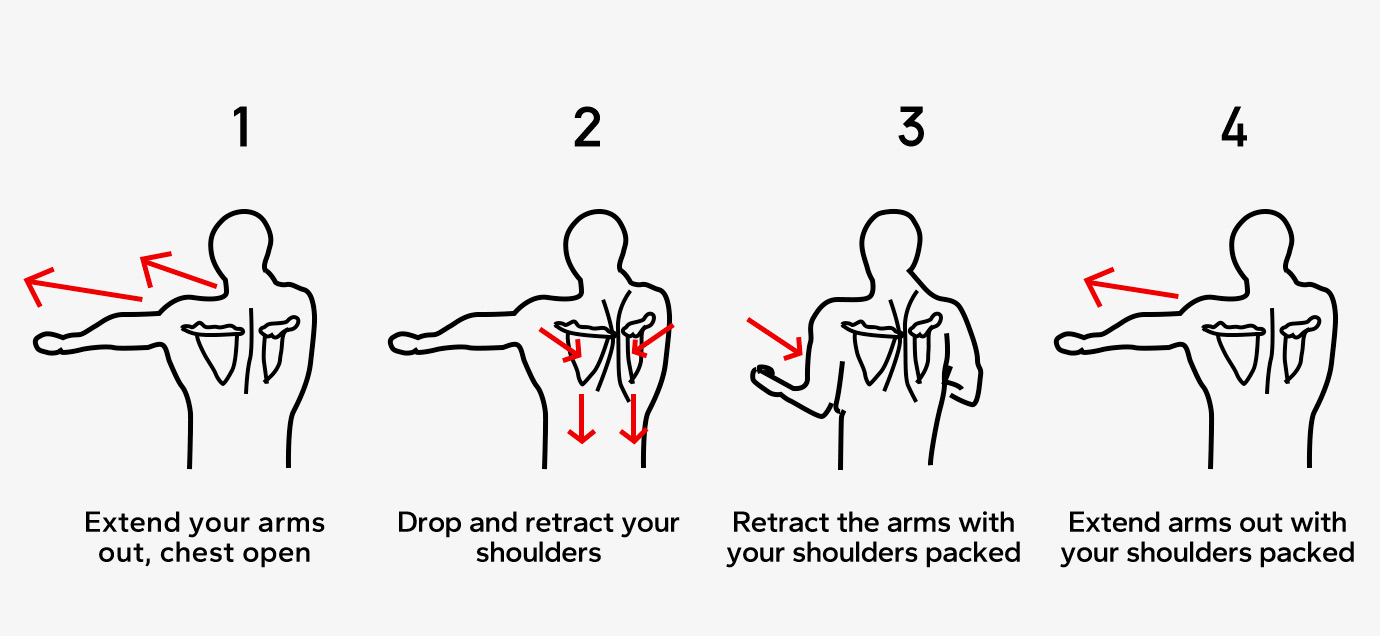
Scapular retraction and depression is the key of a correct and effective bench press. Practice several times following above four steps, you’ll find the right training direction.
-
Forms of Bench Press
There are various ways to approach the bench press regarding training philosophy and technique. Neither style of bench pressing is wrong. They both play for different goals.
1)Power Lifting Bench Press
Arch your back as much as possible and barely keep your butt on the bench. Cutting the distance that the bar has to travel from the broadest part of your chest reduces the time under tension, so you can lift the greatest possible weight.
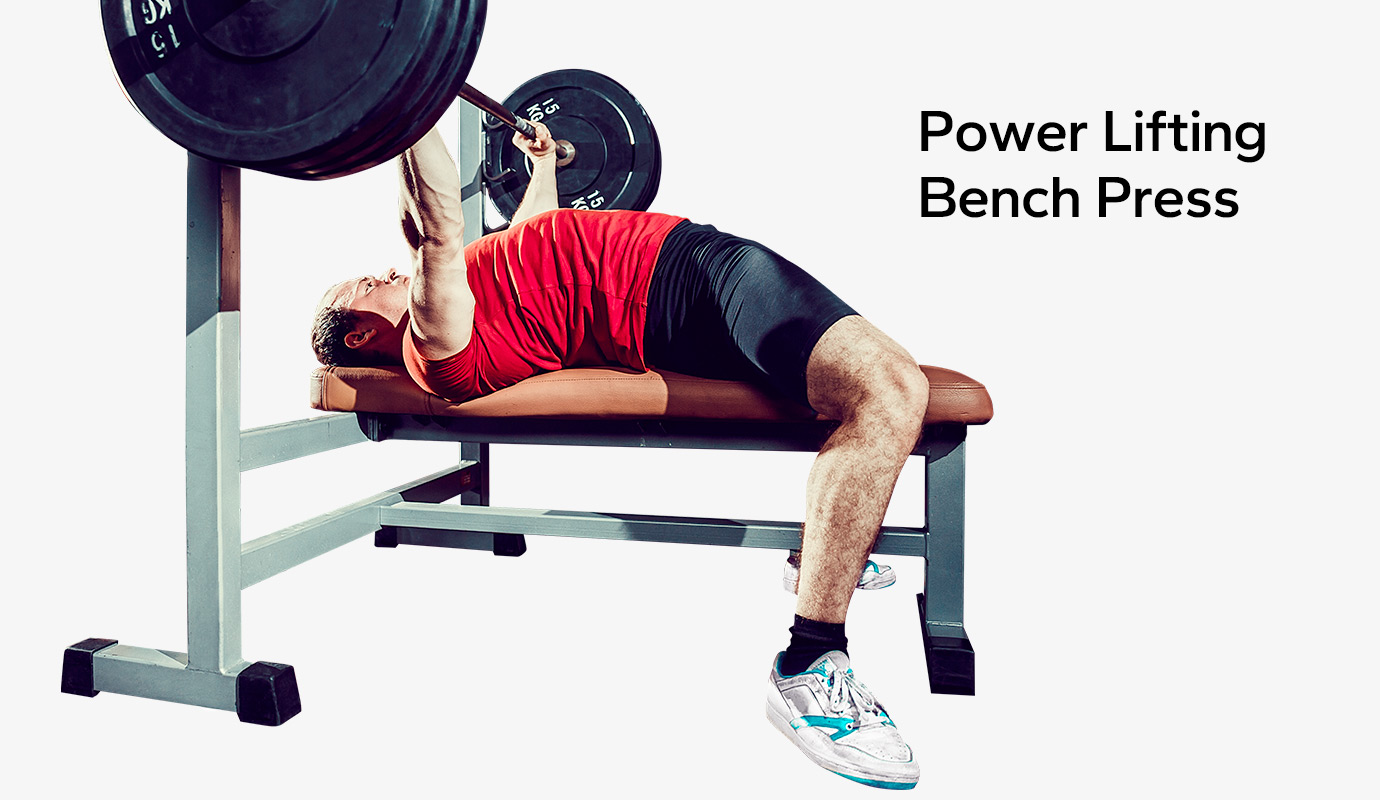
2)Body Building Bench Press
Lie on a flat bench with your core tight, shoulders packed, and a slight arch in your thoracic spine to get the chest to do as much work as possible.
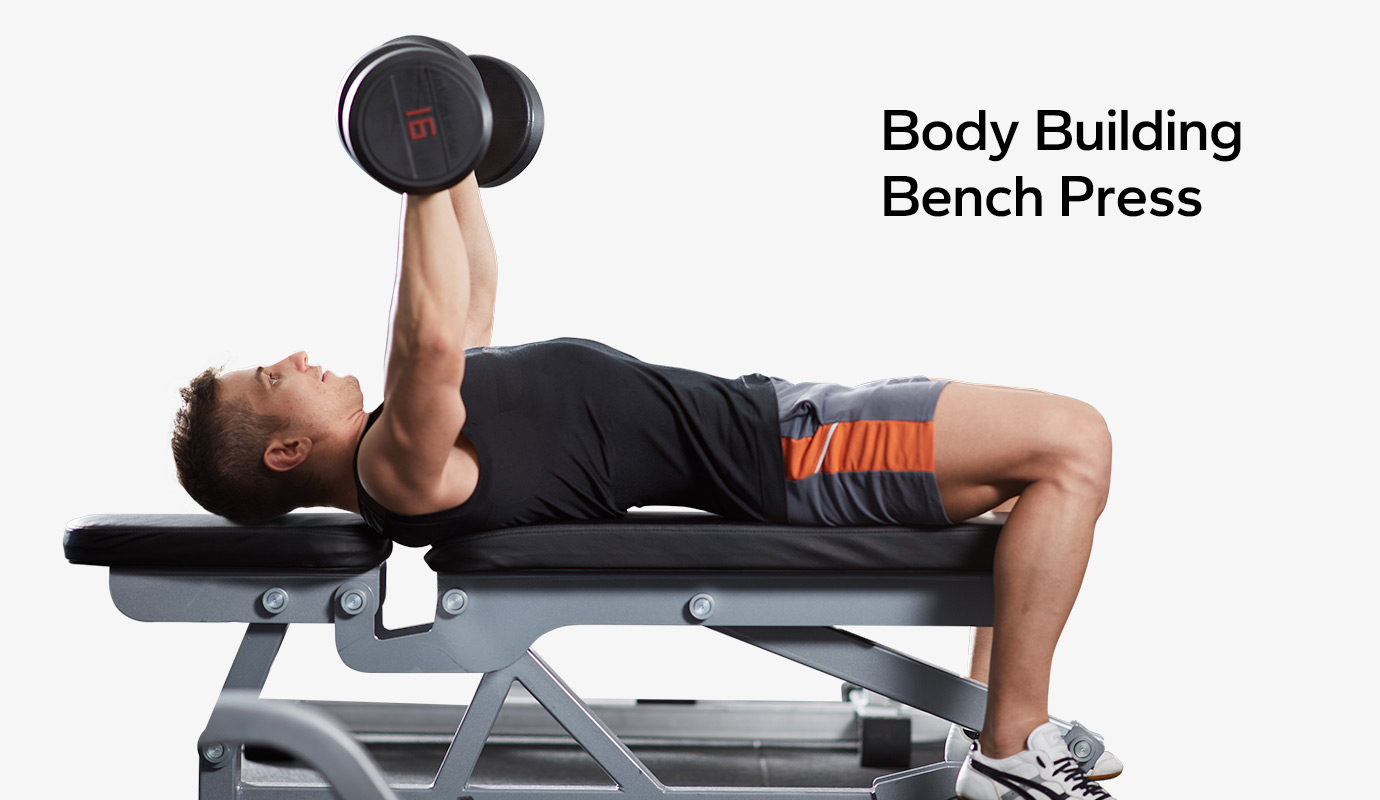
3)Feet-Up Bench Press
The feet-up bench press performs a standard bench press, with legs bent, and the feet positioned flat on the bench. It aims to focus on the isolated exercise on your chest by cutting the tension from your lower body. However, it will add more stress to your shoulders.
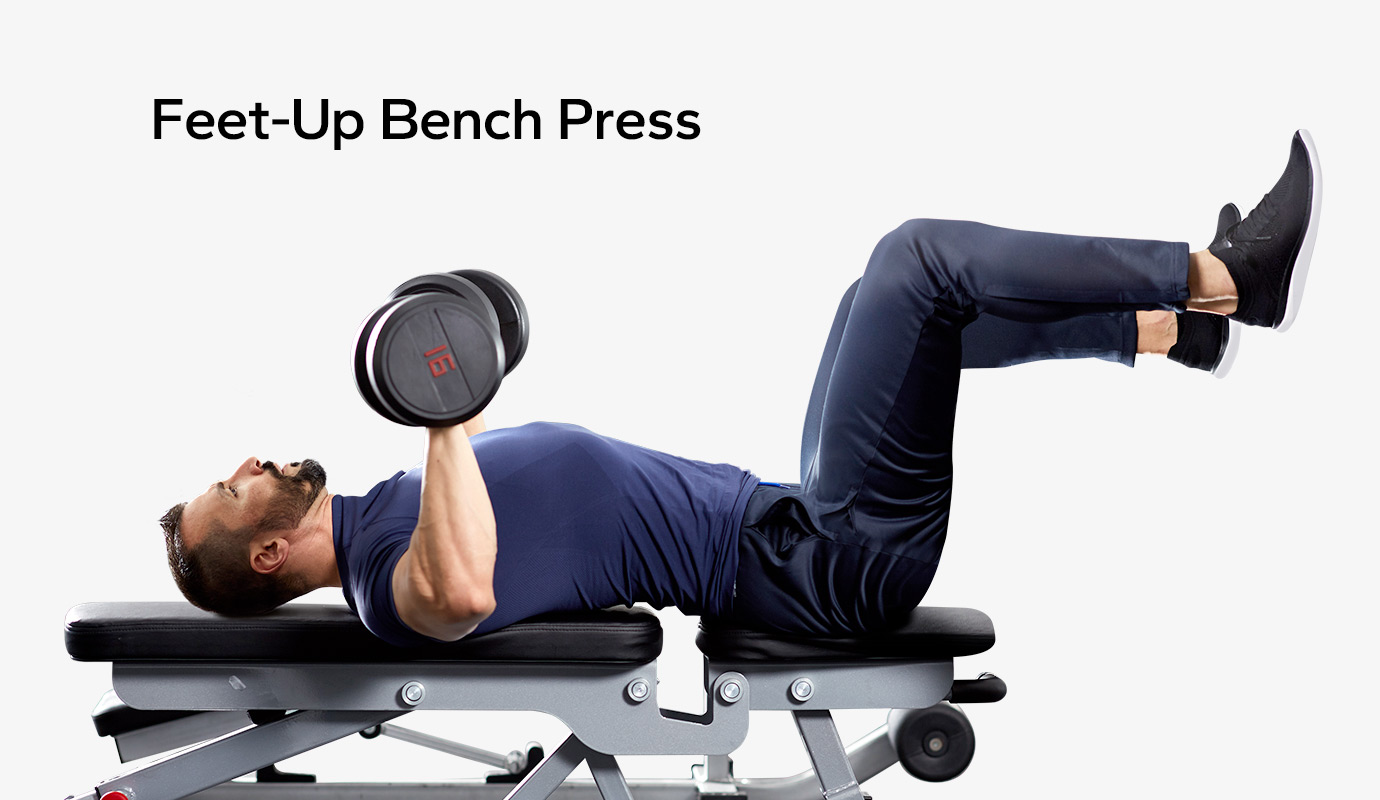
-
Common Mistakes of Bench Press
Let’s get into some common mistakes and the detailed instructions on how to perform the bench press properly.
Here’s what we’ll cover.
-
Pressing With a Suicide Grip
There are only a few ways to get badly hurt in the bench press, and using the thumbless grip is one of them. Why is it called the suicide grip? It risks dropping the bar on your face, throat, and chest and diminishes lifting efficiency. So for the novice, it’s better to adopt the thumb-around grip.
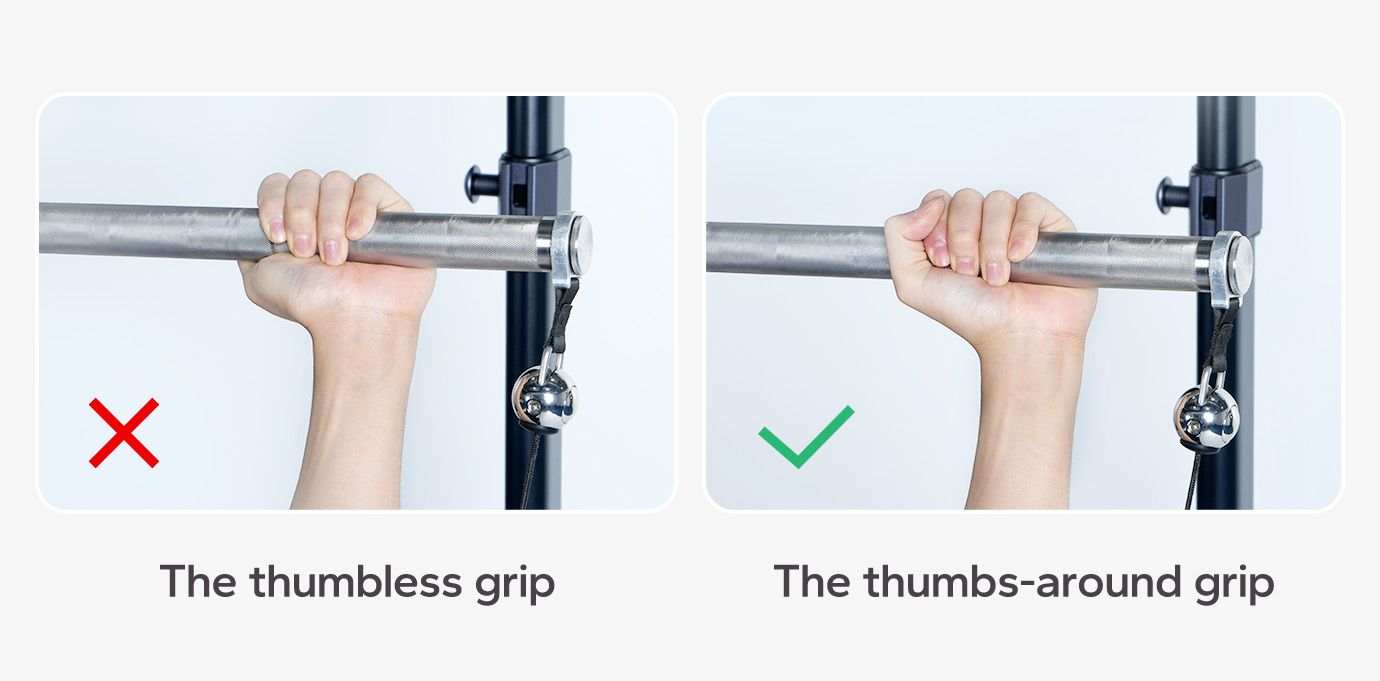
The thumbs-around grip, on the other hand, causes a "squeeze" in the forearms, which increases muscle tightness. Wrapping your thumbs around the bar reduces the possibility of injury from the bar slipping and falling during a bench press.
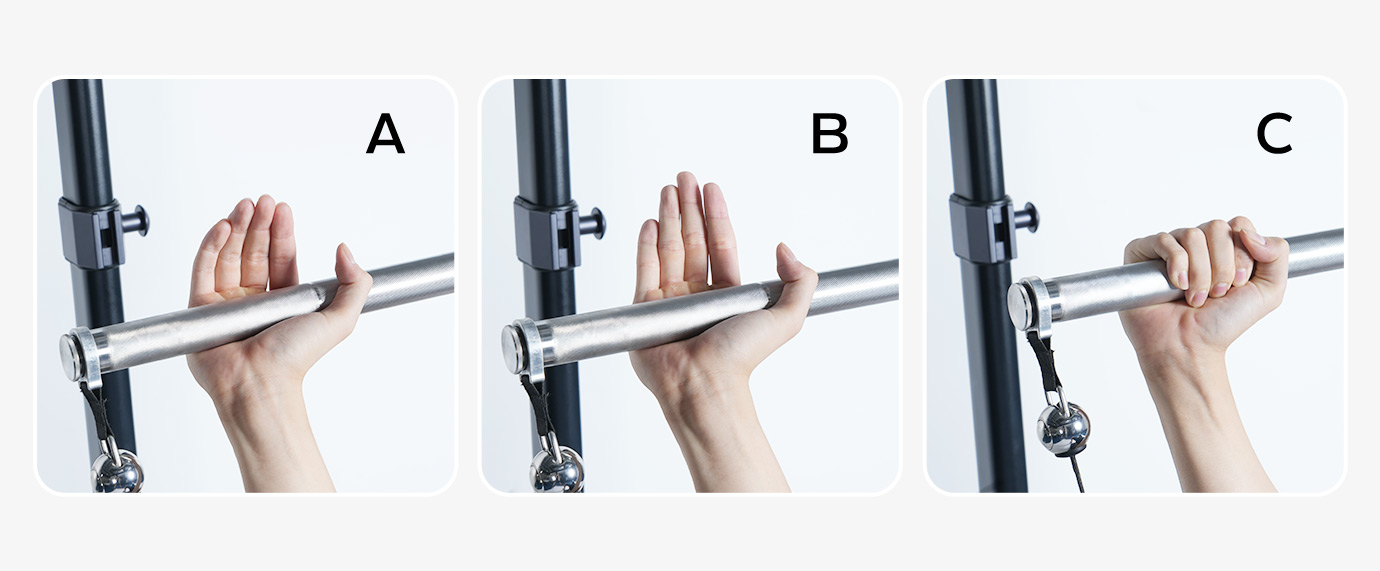
Detailed instruction: set the grip width at the index finger and then rotate the hands into pronation by pointing the thumbs down toward the feet.
-
Improper Grip Width
Grip width, within a specific range, is primarily a matter of individual preference. Where you grip the barbell is vital because it will allow or hinder your ability to activate the right muscles. While a more narrow grip will focus your efforts on your triceps, a wider grip will emphasize your pecs.
Detailed instruction: If you want to emphasis on your chest, a wide grip (1.5-2X shoulder width) is preferable. The greatest range of motion is obtained with a grip that places the forearms vertically when the bar is on the chest.
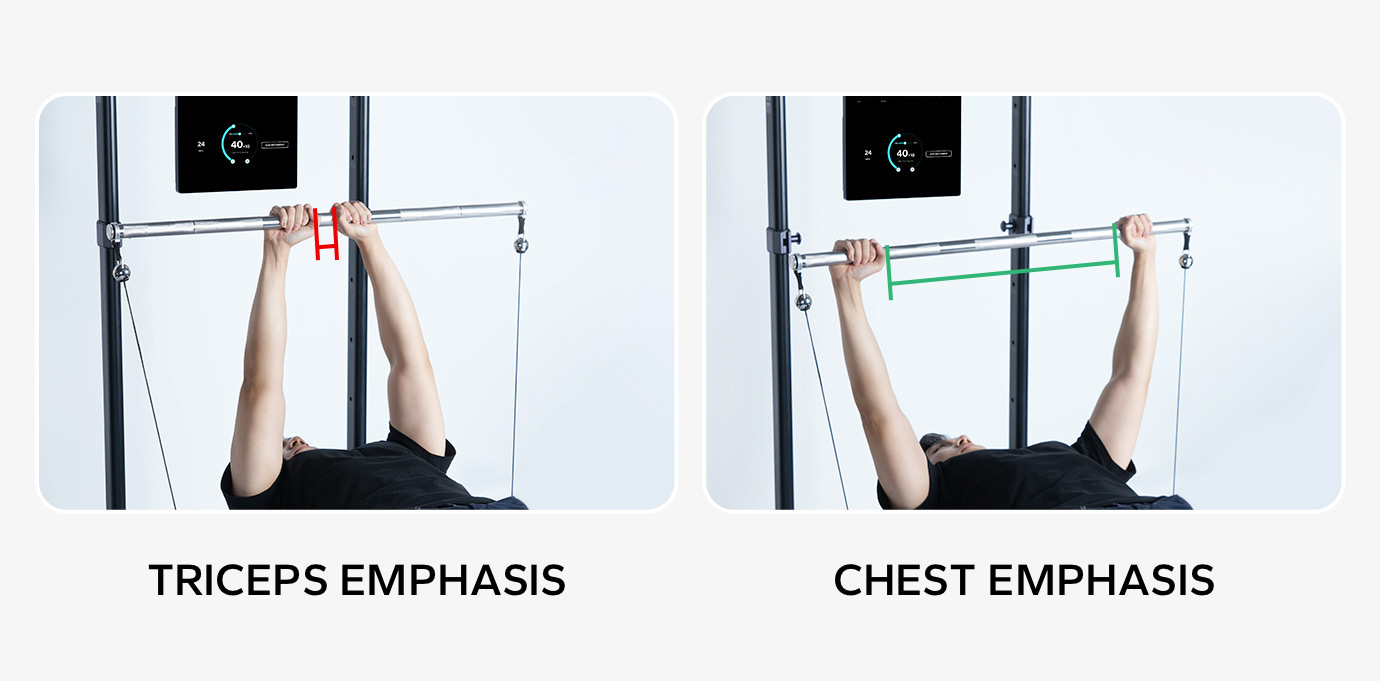
-
Bending Wrists Backward
Bending your wrists backward puts a lot of stress on your wrist joints and easily gets hurt while also being a less effective lift.
Detailed instructions: Protect your wrists by ensuring you keep them nice and straight, vertical to the forearms in a neutral position.
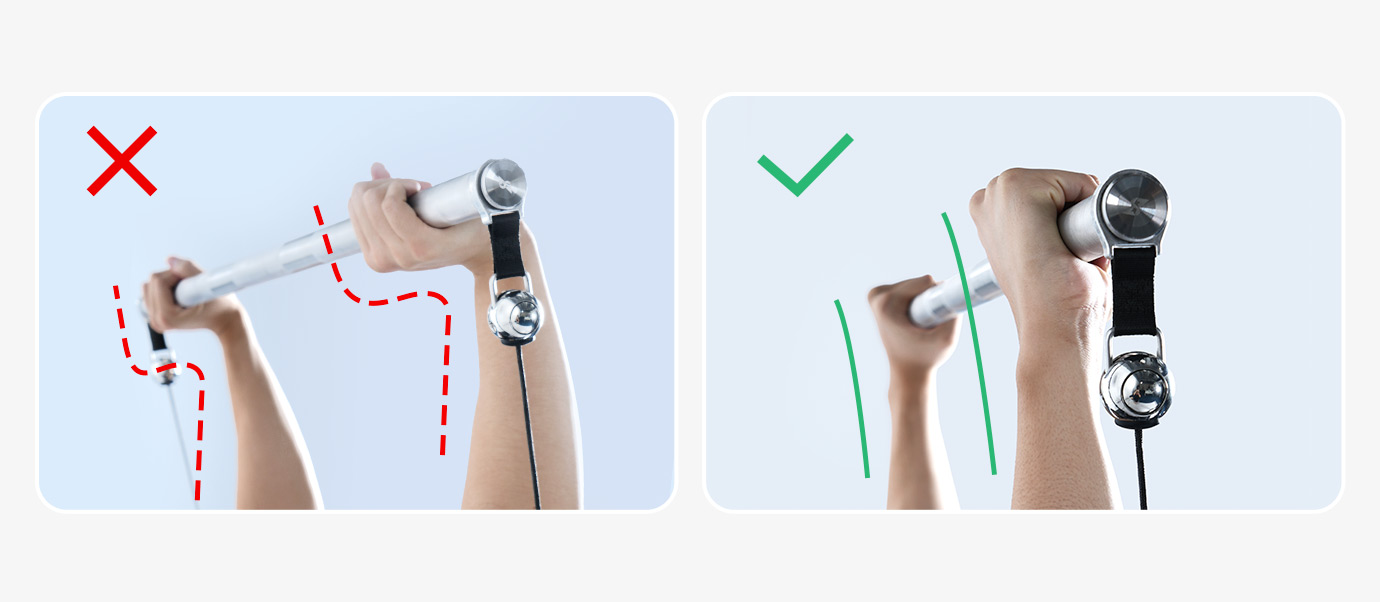
-
Not Packing Your Shoulder
Setting up a bench press with a non-contract blade will push your shoulder under high pressure, potentially causing injury and muscle strain as you ascend.
Detailed instruction: Pulling your shoulder blades down and keeping them safely locked into place and less likely to shift around throughout the motion will protect your shoulder joints and provide you with a solid base to lift more.
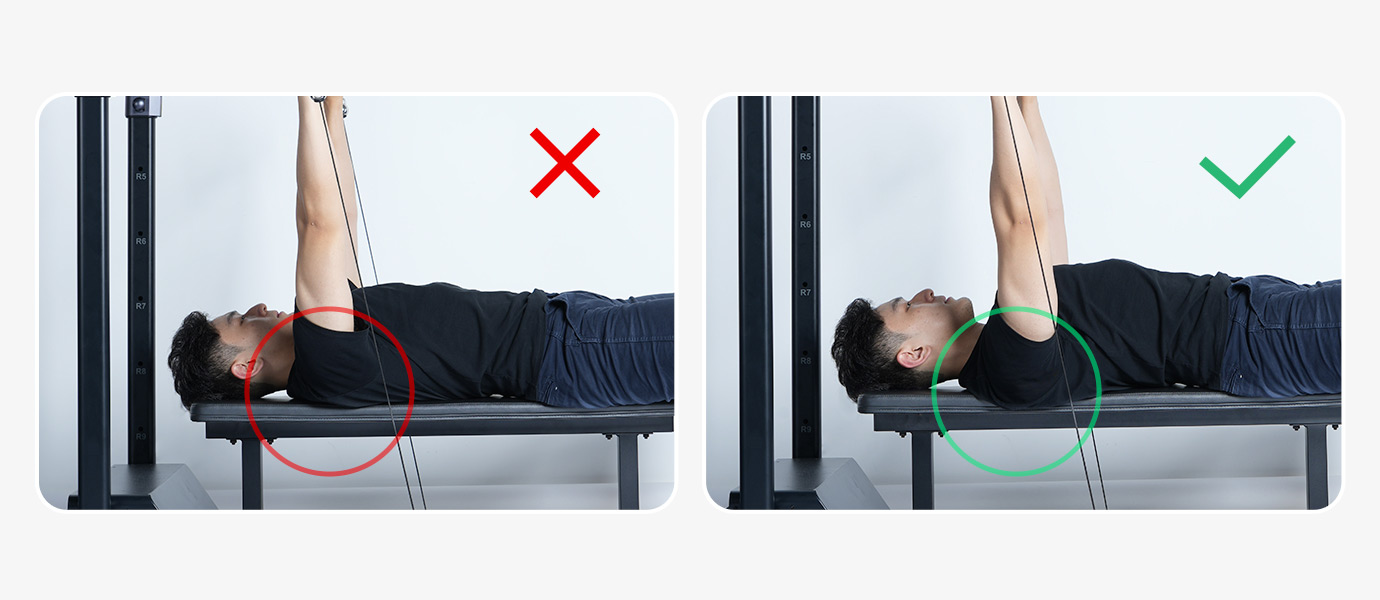
-
Raising Glutes off The Bench
A common mistake on the bench press is to lift the glutes while pressing the bar back up. Legs taking over and stealing the tension will technically assist you in raising the bar when you struggle to complete the movement. However, it is not the most effective way to target your upper-body muscles, and it can cause injury to your waist.
So don’t raise your butt off the bench throughout.
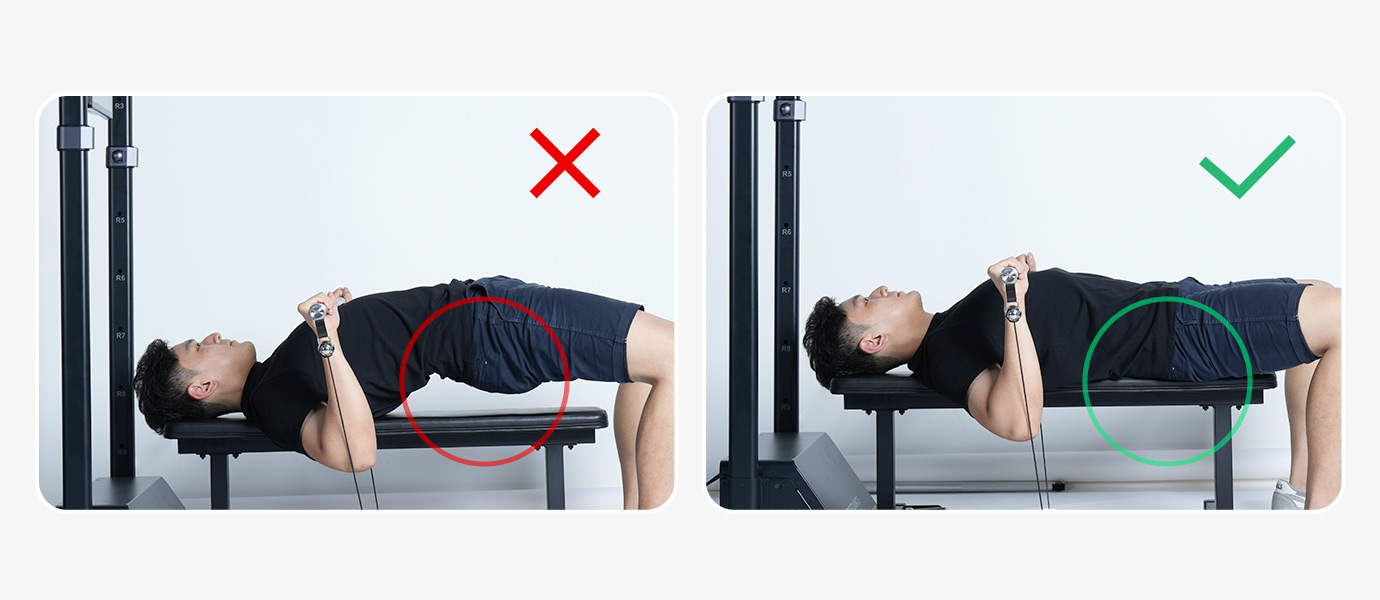
-
Not Keeping The Heels Grounded
The goal of your foot position is to keep you stable and support you throughout the lift. Fidgeting with your feet will takes away your stability and solid base, which decreases your strength, as you can’t get the force from driving the feet into the ground.
Detailed instruction: The proper foot position is right below your knees and flat against the floor, so that the heels can serve as the foundation for the drive up the legs.
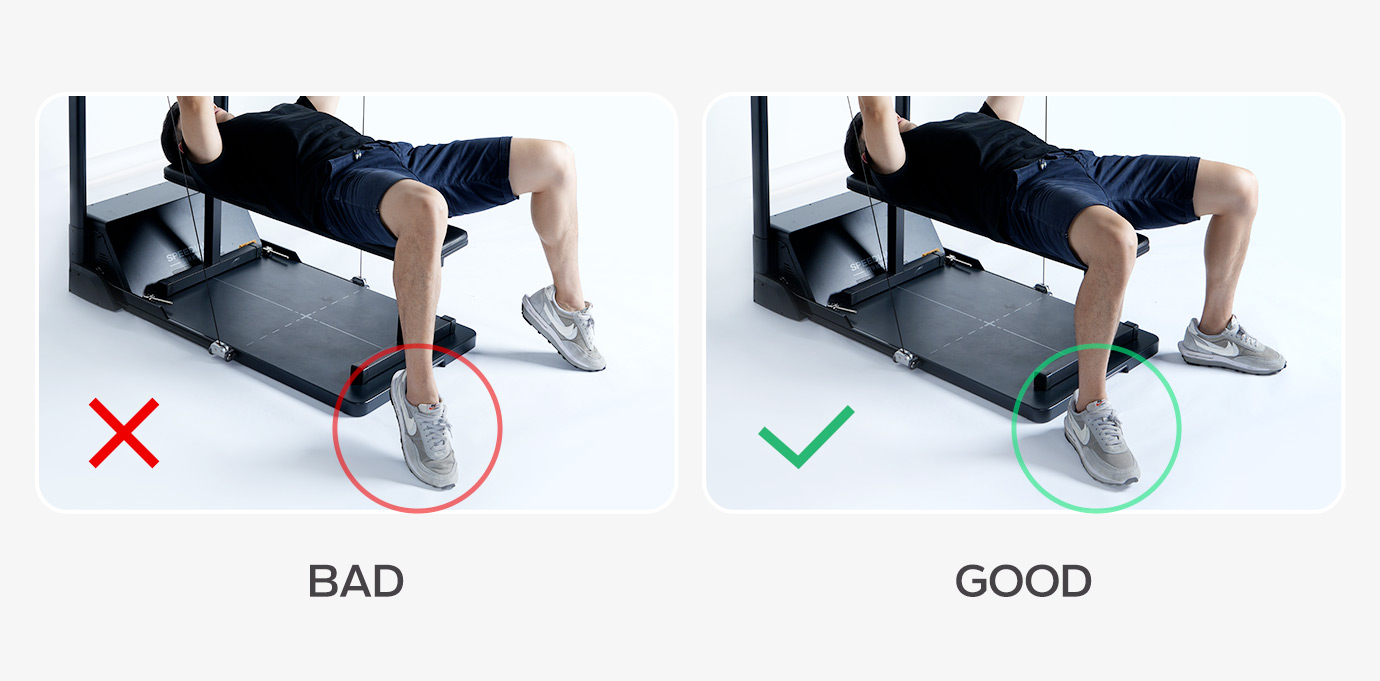
-
Pressing in a Vertical Bar Path
Many common mistakes stem from a straight up and down vertical bar path, such as landing too high on the chest, flaring the elbows, and over-reliance on shoulders to initiate the weight, are all lessening the efficiency of your bench press.
Detailed instruction: The best bench press bar path is one in which the barbell follows a slightly curved path as it comes off the chest and then moves into a vertical bar path as you get closer to lockout.
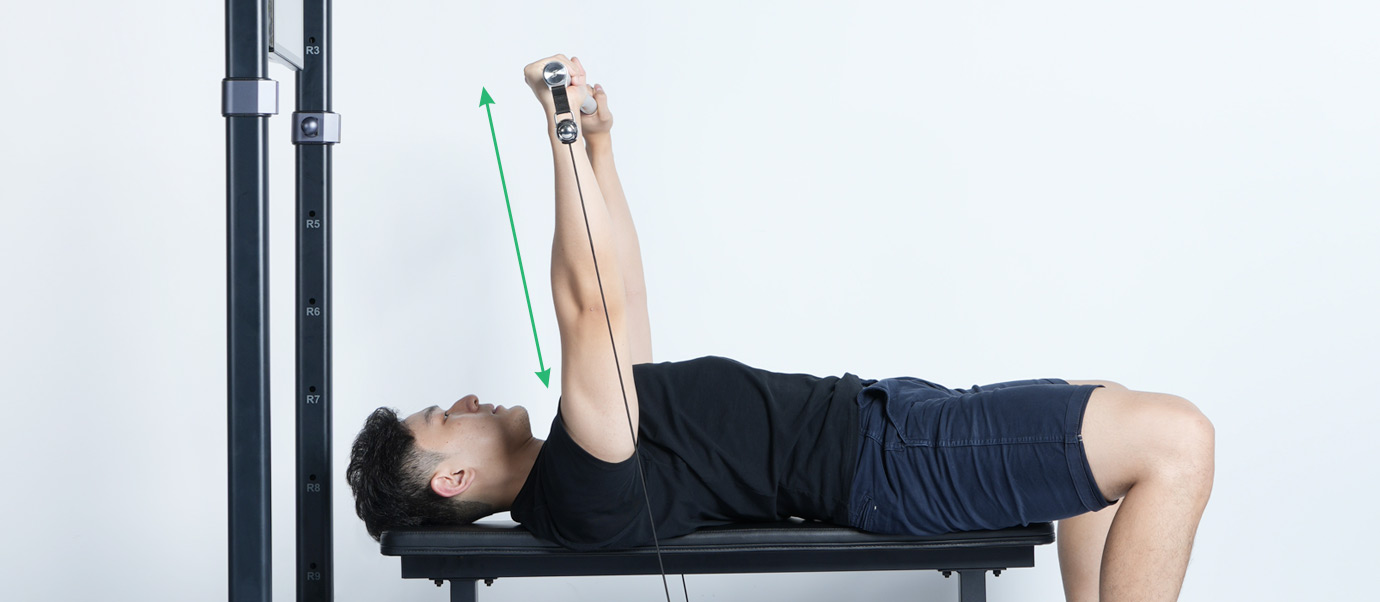
Tips: The bar should be directly above your eyes when you reach the lockout and land until it touches around the nipples.
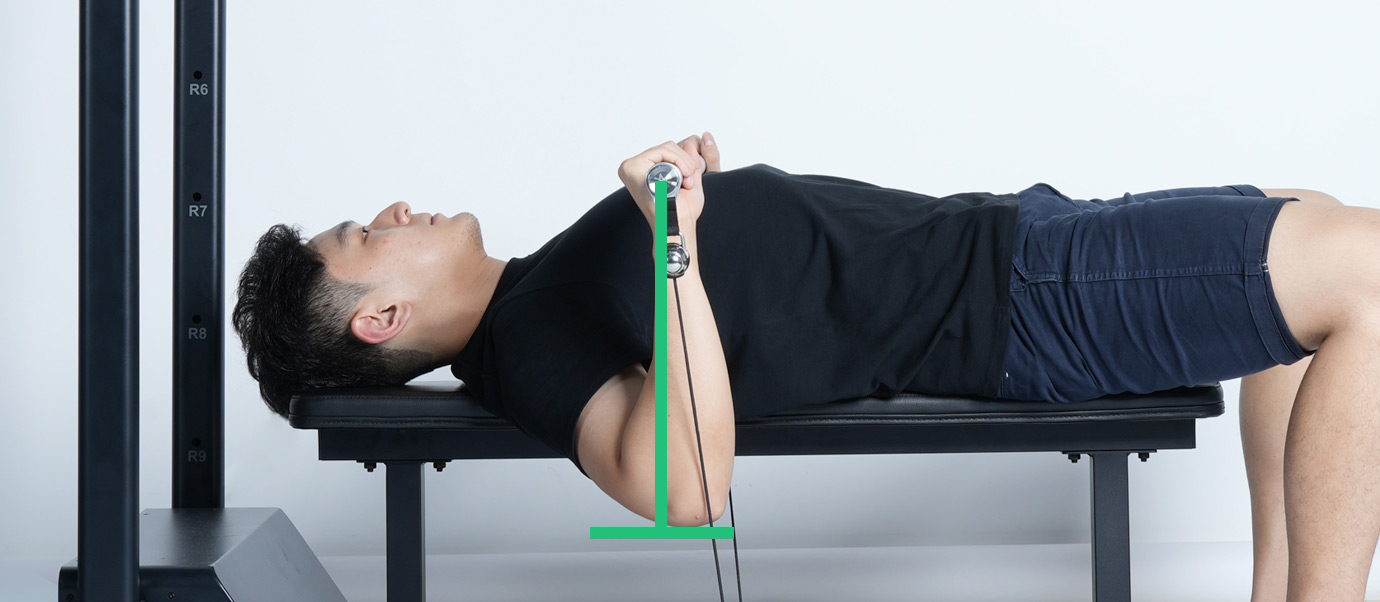
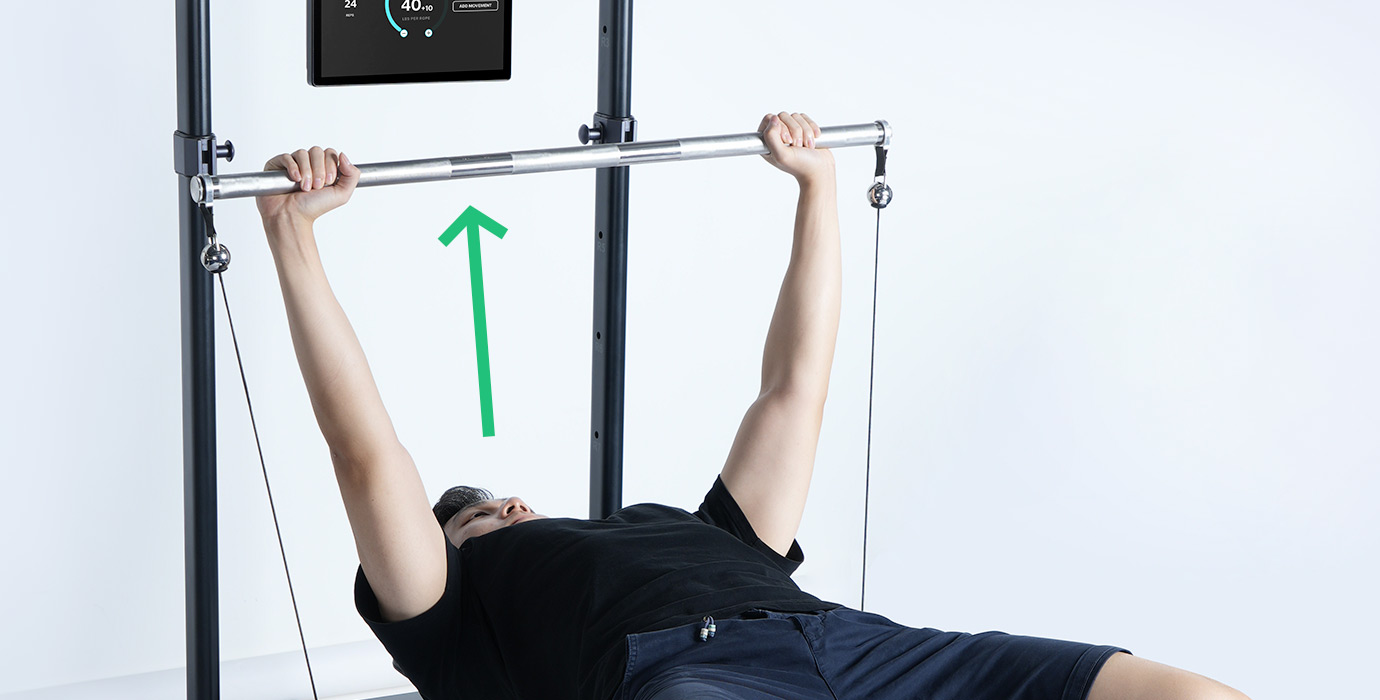
-
Inadequate Warming Up
According to the report, 90 percent of training strain comes from inadequate warming up. So adequate warming up before any compound movement is a crucial step to avoid potentially putting you at risk for injury. Inadequate warming up will also affect the way you perform the movement.9.
Detailed instructions:First, stretch your chest for 1 minute on each side.

Then leverage a small-weight barbell to do the bench press for 20 reps for three sets to stimulate your muscles fully.
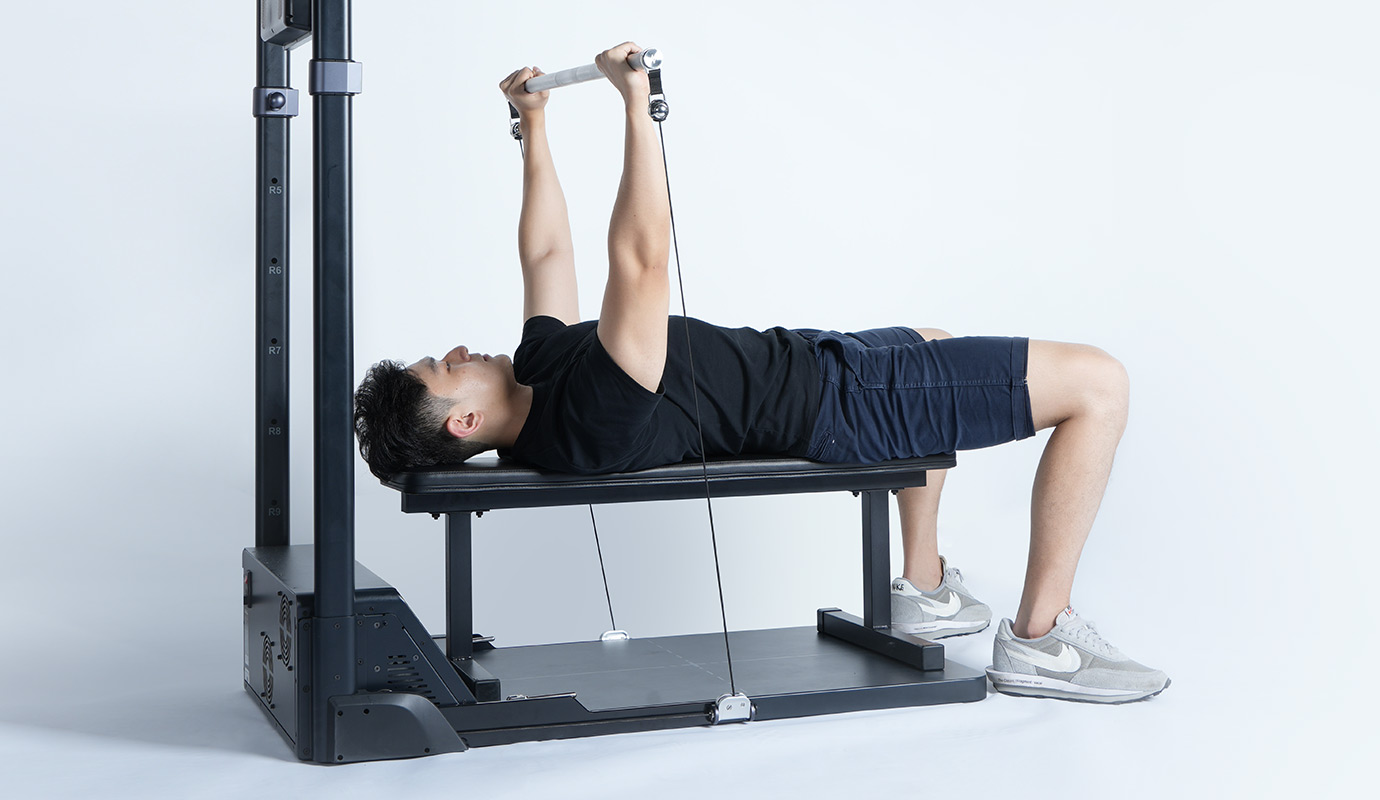
Hope this blog can help you improve your technique and lift more weight on the bench press. Follow Speediance on Instagram @speediancehomegym and YouTube @Speediance to get our latest updates about fitness, healthy life, diet, and workout techniques.
FAQs: Answering Your Bench Press Questions
Q: How long does it take to increase your bench press?
A: You can start seeing results in 4-6 weeks with consistent training and good nutrition.
Q: What’s the best exercise to increase bench press?
A: The close-grip bench press is great for building triceps strength, which helps improve your bench press.
Q: How do I break through a bench press plateau?
A: Mix up your rep ranges, focus on progressive overload, and add accessory exercises to target weak points.











